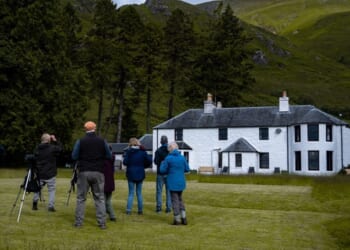(LifeSiteNews) — The abortion wars in the United Kingdom grow grimmer by the day. In Scotland, abortion is permitted up until 24 weeks with sign-off from two doctors that the pregnancy poses a risk to the mental or physical health of the mother, a notoriously lax standard that in practice permits abortion on demand. Even though 24 weeks is two weeks after a pre-born child is viable outside the womb, the BBC’s framing was that abortion “is only [emphasis mine] legal before 24 weeks.”
A report commissioned by the Scottish government is now recommending that even these grounds be scrapped, and that doctor approval should only be required for late-term abortions after 24 weeks. The Abortion Law Expert Group was carefully stacked with abortion activists, and thus the outcome was essentially determined by the government in advance. As Fleur Meston noted in The Critic:
Of the thirteen members of the “Expert Group”, most have ties to the abortion provider BPAS as current or former board members or staff, or are pro-abortion campaigners, including BPAS’s current Head of Advocacy. “No legal upper limit” is the wish of BPAS’s former CEO, Ann Furedi. The Scottish Government, using public funds, has commissioned advice from organisations that could stand to benefit from removing their own criminal liability, broadening who can perform abortions, and reducing oversight, data collection, and scrutiny — all proposed by the review.
The Abortion Law Expert Group predictably delivered, stating that the country’s current laws – despite their laxity – are “anachronistic, paternalistic and failed to reflect best modern practice.” According to the report:
The group agreed unanimously that current Scottish abortion law is not fit for purpose and that alternative models should be considered. Legal recognition should be given to the woman’s right to make their own decision regarding whether to continue or to end a pregnancy, and that abortion should become available on request, at least within gestational limits.
The document did not even consider the interests of children in the womb, treating them as a de facto non-entity. “The report demonstrates the group’s view that it is time for an abortion law that reflects the reality of current clinical practice where abortions are safely provided in the best interests of women,” stated the group’s chair Anna Glasier.
Preborn children can survive outside the womb as early as 21 weeks and can feel pain as early as 12 weeks’ gestation.
Jenni Minto, Scotland’s Minister for Health, responded to the report by affirming the premise that the government must “ensure that abortion is treated as a healthcare matter and that women are supported to access safe and timely abortion services” and stated that the review will be considered along with the perspectives of other stakeholders (although not, presumably, the preborn child). The review also advised the elimination of all penalties for self-administered abortions.
One aspect of the Abortion Law Expert Group’s review has triggered an especially fierce backlash – the recommendation that a new abortion law should make “no specific reference … to sex-selective abortion,” a move that would ensure that it is legal to abort a baby girl simply because she is a baby girl. Currently, this lethal practice is illegal in the United Kingdom because it falls outside the legal framework laid out in the 1967 Abortion Act. The review recommended that there be no limitations on abortion before 24 weeks whatsoever, including deliberate female feticide.
As Meston noted in The Critic: “The report’s refusal to prohibit sex-selective abortion shows total moral indifference. Polling indicates 91 per cent of women oppose sex-selective abortion, and 70 per cent of women would support a reduction in the time limit from 24 weeks to 20 weeks or below. These figures show a gap in humanity between the so-called ‘progressives’ and the public.”
The recommendations have prompted angry responses. Conservative leader Kemi Badenoch condemned the recommendation as “totally disgusting”; Tory MP Suella Braverman called it “morally repugnant”; and MSP Jeremy Balfour stated that the proposal “would allow sex-selective abortion right up to birth … an extreme departure from European norms that puts women at risk and leaves unborn children with no protections at all.” Unherd columnist Kathleen Stock’s response cut to the heart of the matter: “Aborting a baby because it’s a baby = silence. Aborting a baby because it’s a girl = howls of outrage.”
The response might make a difference. As the Catholic Herald put it: “The scale of the backlash suggests that any move towards liberalisation will face sustained and determined resistance.”


















